Meet HGSS The Croatian Mountain Rescue Service
August 19, 2020 – All weather, all terrain, all year round – meet HGSS The Croatian Mountain Rescue Service, amazing volunteers who will never let you down
They're never far from the news. For the last two weeks, members of HGSS The Croatian Mountain Rescue Service have yet again been on the TV news every night. They're leading the search for a summertime visitor, a Polish hiker missing on Biokovo mountain.
But, watch again this winter and, for sure, they'll be in the headlines once more. Whether, they're scaling mountain ranges in the unbearable heat of high summer, searching underwater caves, flooded rivers or the sea, breaking through wild forest or trudging through metres of snow, they undertake their search and rescue missions over every terrain, in every weather condition, in every month of the year, all across Croatia. And, they all volunteers.
Marc Rowlands meets the head of service for HGSS The Croatian Mountain Rescue Service and three of its volunteers to find out who they are and what makes them do what they do.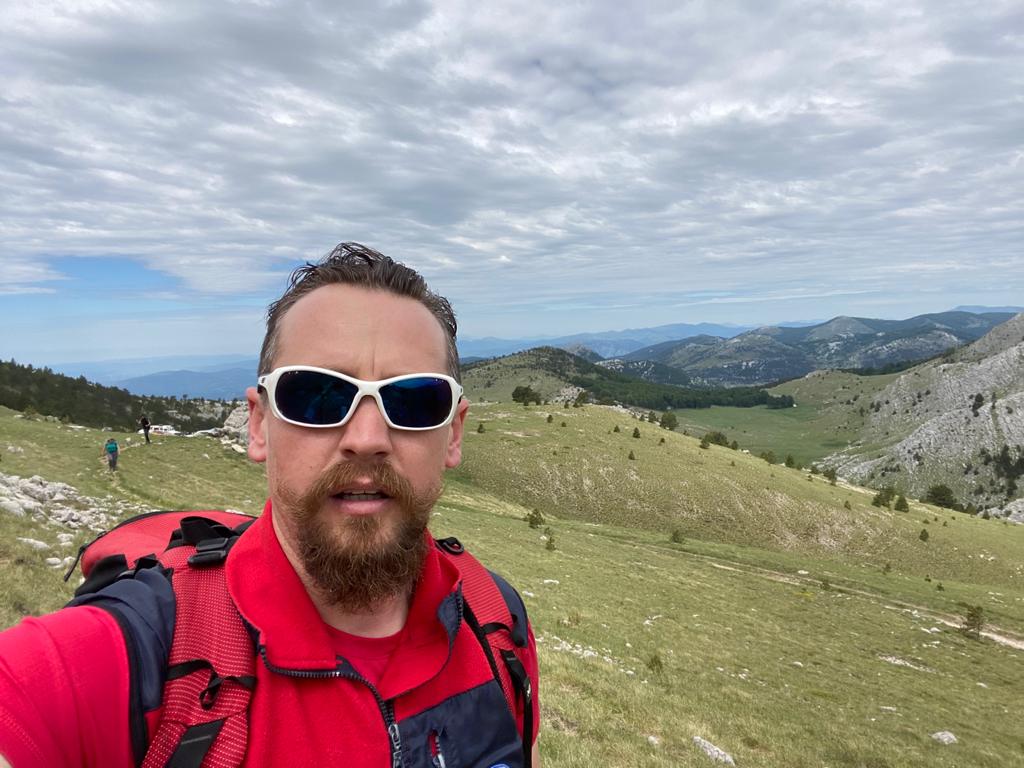
Josip Granić, head of service for HGSS The Croatian Mountain Rescue Service
My name is Josip Granić. I'm the Head Of Service for HGSS The Croatian Mountain Rescue Service. We've had an extremely busy couple of weeks. Being head of service for an organisation like this under such circumstances means you're always on the phone; co-ordinating, talking to outside organisations, members of the press. Communication. It's a 24/7 job, 365 days a year. If people need help, you can't take a holiday. Not at this level of the organisation.
We have around 1000 members. There are 11 paid positions in the main organisation and 25 people we pay to run the administration in each of the teams or stations we have. All of the members who perform the search and rescue are volunteers. We have pilots, surgeons, nurses, students, professors, every part of society.
I'm originally from Kaštela, but my home station is in Karlovac. I've been there for 15 years. I've been Head Of Service for two. Since I assumed the position, I've spent most of my time in the car. I travel all over Croatia.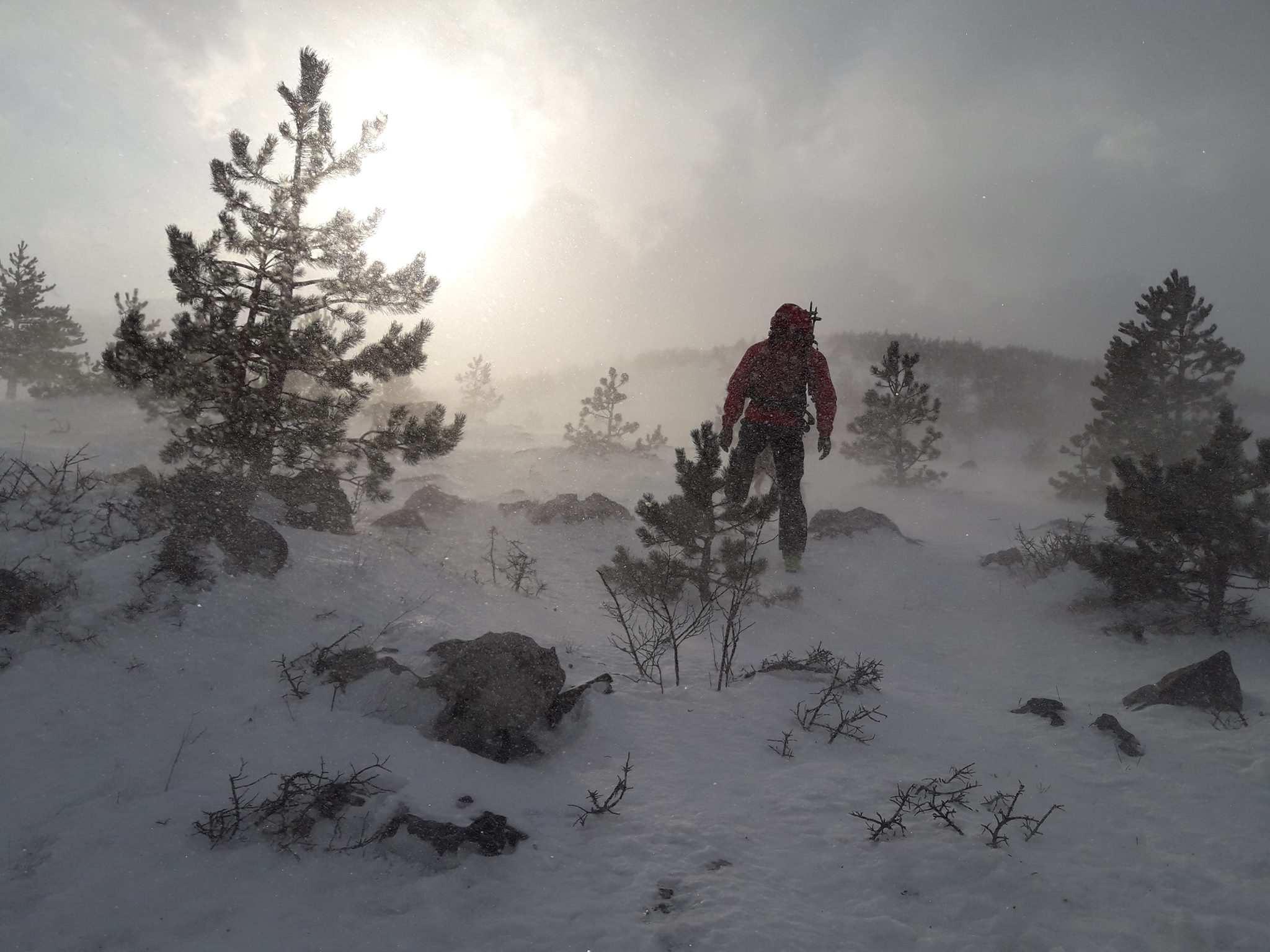
HGSS The Croatian Mountain Rescue Service missions can be hampered by extreme weather conditions © HGSS The Croatian Mountain Rescue Service
To get a certified position as a mountain rescuer in Croatia you all do the same training. It doesn't matter if you come from Slavonia, Dalmatia or Istria, you must have the knowledge and ability to deal with circumstances in any terrain; caves, pits, mountains, on snow, underwater.
Depending on where your station is, the type of call-outs you get could be very different. In Slavonia, 90% are for missing persons - searching forests, rivers, and in floods. We've had a big search on Biokovo mountain for the past 16 days. The stations from Split, Makarska, and Dubrovnik were at first involved, then teams from all over Croatia. It's not the same as Slavonia. The terrain is very different, so you have to be good at a particular set of skills. But, the largest percentage of call-outs is still missing persons. It's 70% of our work nationwide. The other 30% are rescues.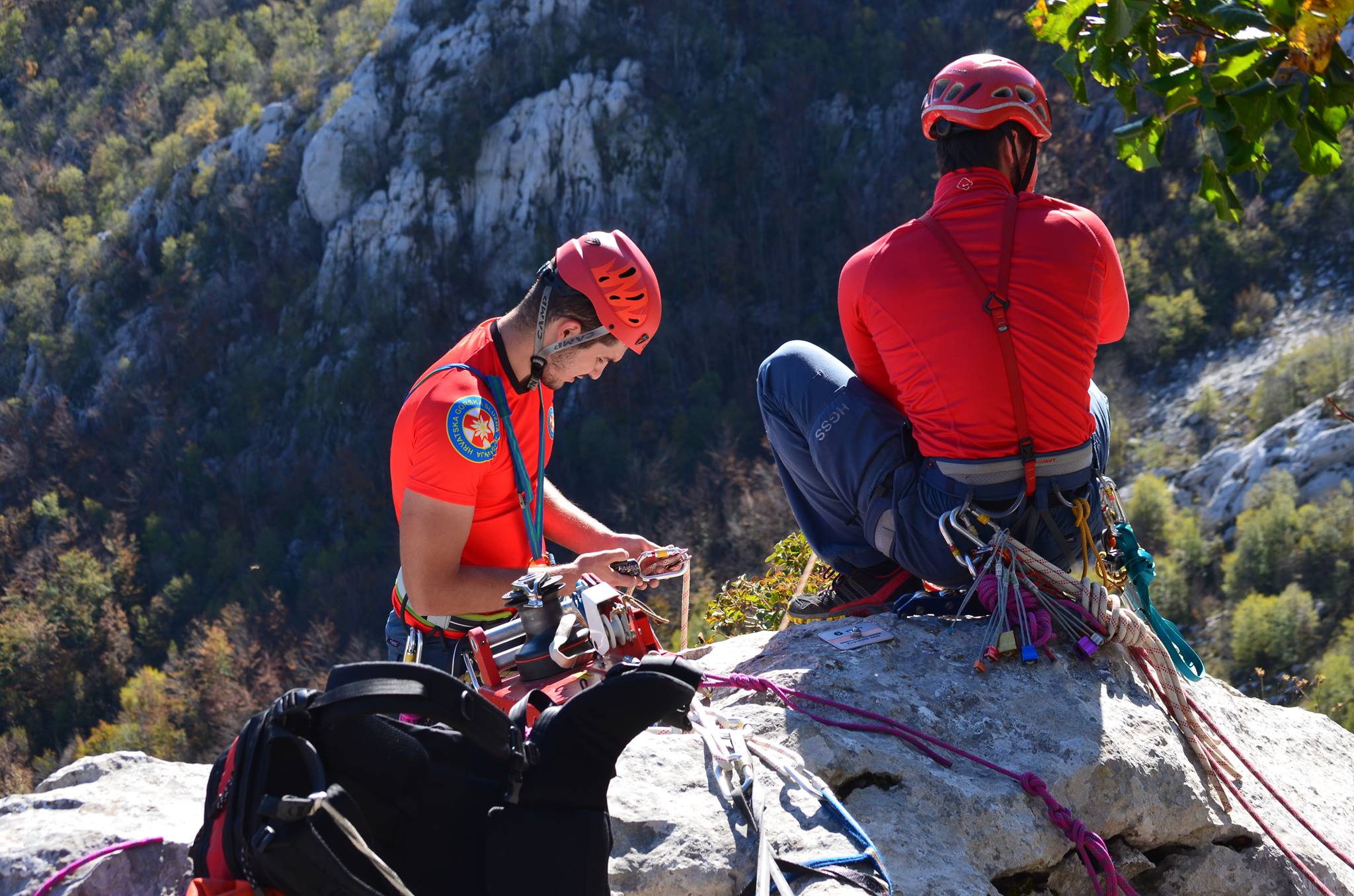
HGSS volunteers are educated to use a wide range of technical equipment. They are trained to operate in all the different kinds of terrain found across Croatia © HGSS The Croatian Mountain Rescue Service
There are usually 800 – 1000 missions a year across the country. We get roughly the same amount of calls in colder months as in warmer months. Only, winter months can be busier. The terrain is more difficult. There are some villages in Croatia – usually where the front line of the fighting was, around Karlovac, Kordun, Lika – and when it snows, it can be almost impossible to reach those places. But, some older people still live there. It can take days to reach them on snowmobiles, then skis, to deliver food or medecine. The other busiest places in winter are the ski resorts - Platak, behind Rijeka, and in Zagreb, on Sljeme. There are teams stationed in those places throughout the snow season.
What's the greatest danger of the job? Almost everything. Nothing in this job is easy. The greatest dangers we face are the same facing those that we rescue - underestimating the environment, nature, the conditions. That's where our training comes in.
In mountain rescue, we separate dangers into subjective, objective and technical. Subjective is the stuff you're guilty of - lack of preparedness, knowledge or equipment. Objective dangers are the ones you can't control, like sudden changes in weather, or avalanche. If you're sensible and informed, there should be no objective danger.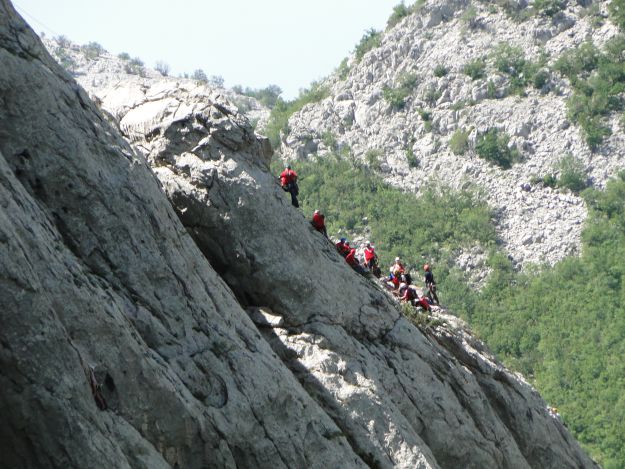
HGSS on a mission, clinging to a steep incline in Paklenica © HGSS The Croatian Mountain Rescue Service "People need to be aware at all times on the mountains. By the time most people think they may be in trouble, they've usually been in trouble for five or ten minutes already" Josip Granić.
80 – 85% of the people we rescue are Croatian. Only 15 – 20% are guests. People from Czech Republic, Slovakia, Poland, (Austria and Slovenia too) tend to enjoy nature more. They like hiking. That's the reason there are typically more rescues for those nationalities than there are for British, Belgian, French, Italian, America, Canadian or Australian guests. I don't remember the specific year, but sometime between 15 and 20 years ago we had a season where 5 or 6 Czech nationals were being searched for or, sadly, turned up dead. The media covered it and ever since there's been this myth that all the people who get into difficulty are Czech.
The question about expensive helicopter rides - why don't you charge the people you rescue - has been here forever. It's like this - if you're a tourist and you have a car accident in Croatia, the fire service, police and an ambulance will come. You won't get charged. We are a tourist country. According to international agreements, we are obliged to make everything safe for residents and guests alike. We are here, just like the fire service and police, to do our part. The Croatian air force is responsible for the helicopter rides and I have to give credit to them - they are crazy good pilots. Amazing. Even if we did charge everyone we saved - and most of the 85% of Croatians we save would struggle to pay - it still wouldn't be anywhere near the money required to run this service.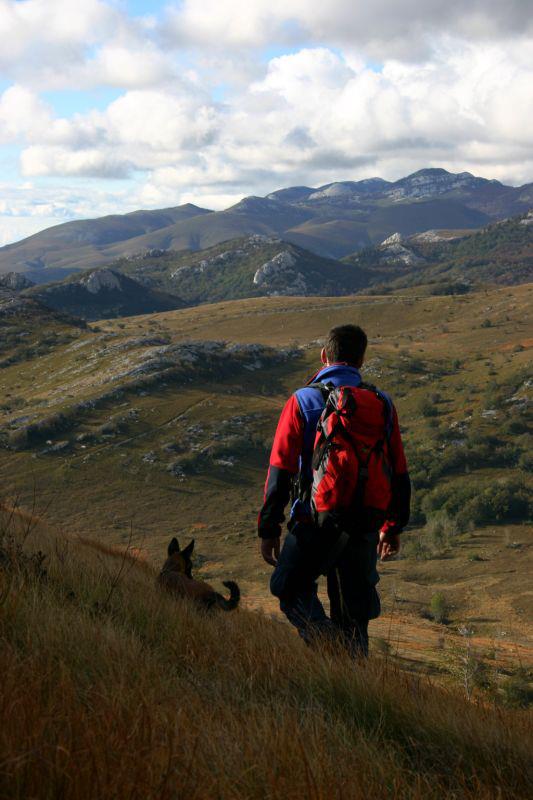
The Croatian Mountain Rescue Service used specially trained dogs on their searches © HGSS The Croatian Mountain Rescue Service
In 2007, I got a new search dog. It came from the Ogwen Valley Mountain Rescue service in North Wales. We cooperate a lot. We were sent out on a job to look for a three-year-old male child who had gone missing near Požega at the beginning of January, wintertime. His grandma was watching him and they were in a house on the edge of the woods. Early in the morning, he was playing with a dog. It suddenly ran into the forest and the boy chased after him. The grandmother didn't see it happen. I found him using my new dog, just after 8 o'clock the next morning. He'd been alone in the freezing forest for almost 20 hours.
Time is really moving fast on a job like that, because it's a kid and because it's so cold. Survival rates in such conditions are not good after 24 hours. When I found him, saw that he was alive, those big eyes looking up at me, it's a crazy feeling. You can't describe it. You can't compare it. A lot of positive emotions.
Every mission is special. We meet them all with the same level of determination and professionalism. But, it's the ones where you know you've really saved someone that stand out in the memory. Not the broken leg, where you transported someone – sure, that's an excellent job. But, when you know you've saved someone's life, that they definitely wouldn't be here now if it weren't for you, that's what makes it all worthwhile.
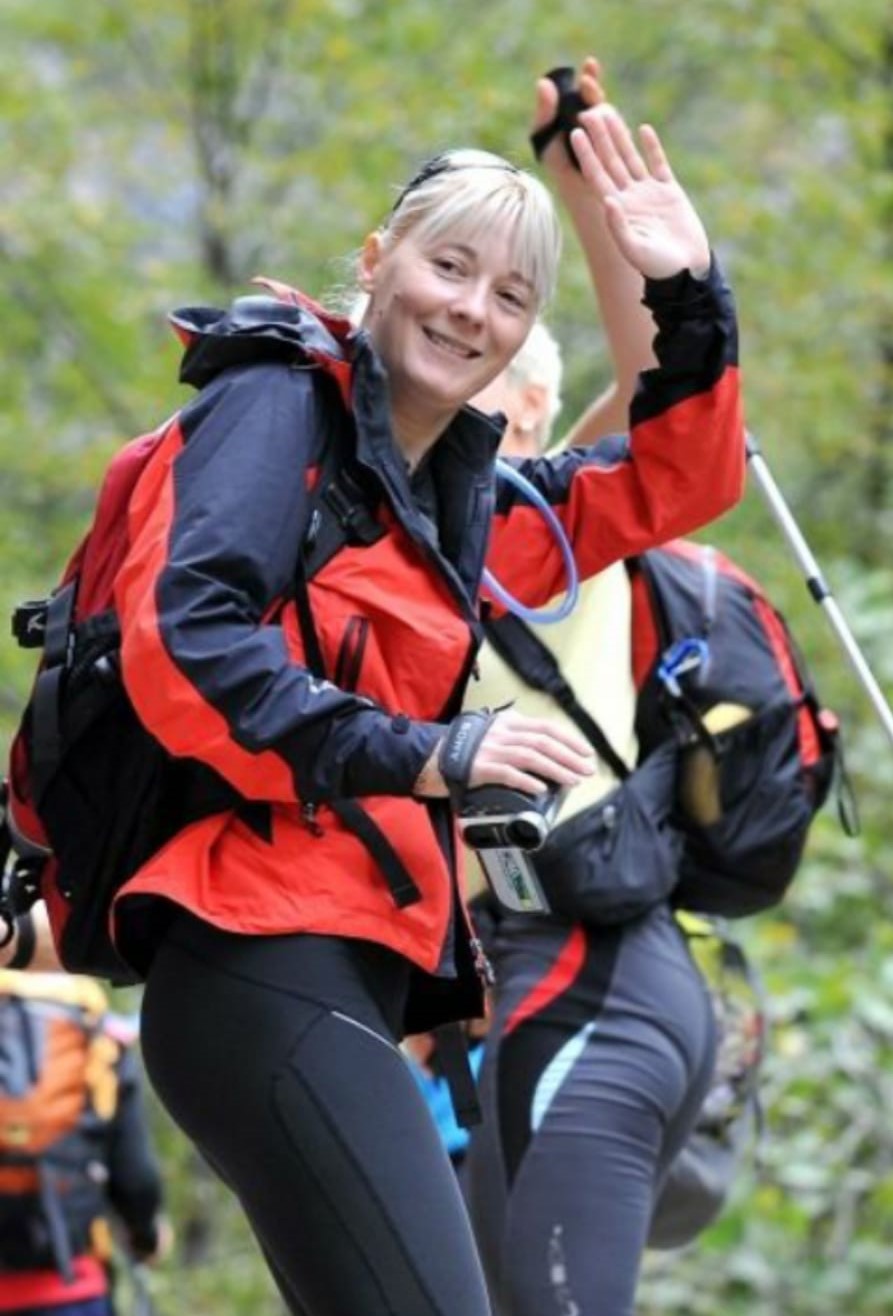
Jana Mijailović, volunteer for HGSS The Croatian Mountain Rescue Service
My name is Jana Mijailović, I'm 48 years old and I'm from Zadar. I finished school to be a teacher, but I never did it. My husband and I run a company that does plastic and aluminium windows for houses.
I started to go into the mountains when I was at high school. I never had the ambition to be part of mountain rescue services – people just noticed me on the mountains. They said I'd be good at it and asked me to join. I met my husband on the mountains. We are both volunteers for HGSS The Croatian Mountain Rescue Service. I've been doing it for 16 years.
I was a member of the first and second all-female Croatian expeditions to the Himalayas. We first climbed Cho Oyu in 2007, then Mount Everest in 2009. Croatia is the only country in the world that has only one successful male climber of Mount Everest, but four successful female climbers. I sometimes work as a guide too. I guess you could say I'm all about the mountains.
Being a climber, an Alpinist, I know that if I get into trouble, it's only my HGSS colleagues who can help. I feel this instinctively. I cannot be in the house, safe and warm, knowing that maybe someone needs help that only I can provide.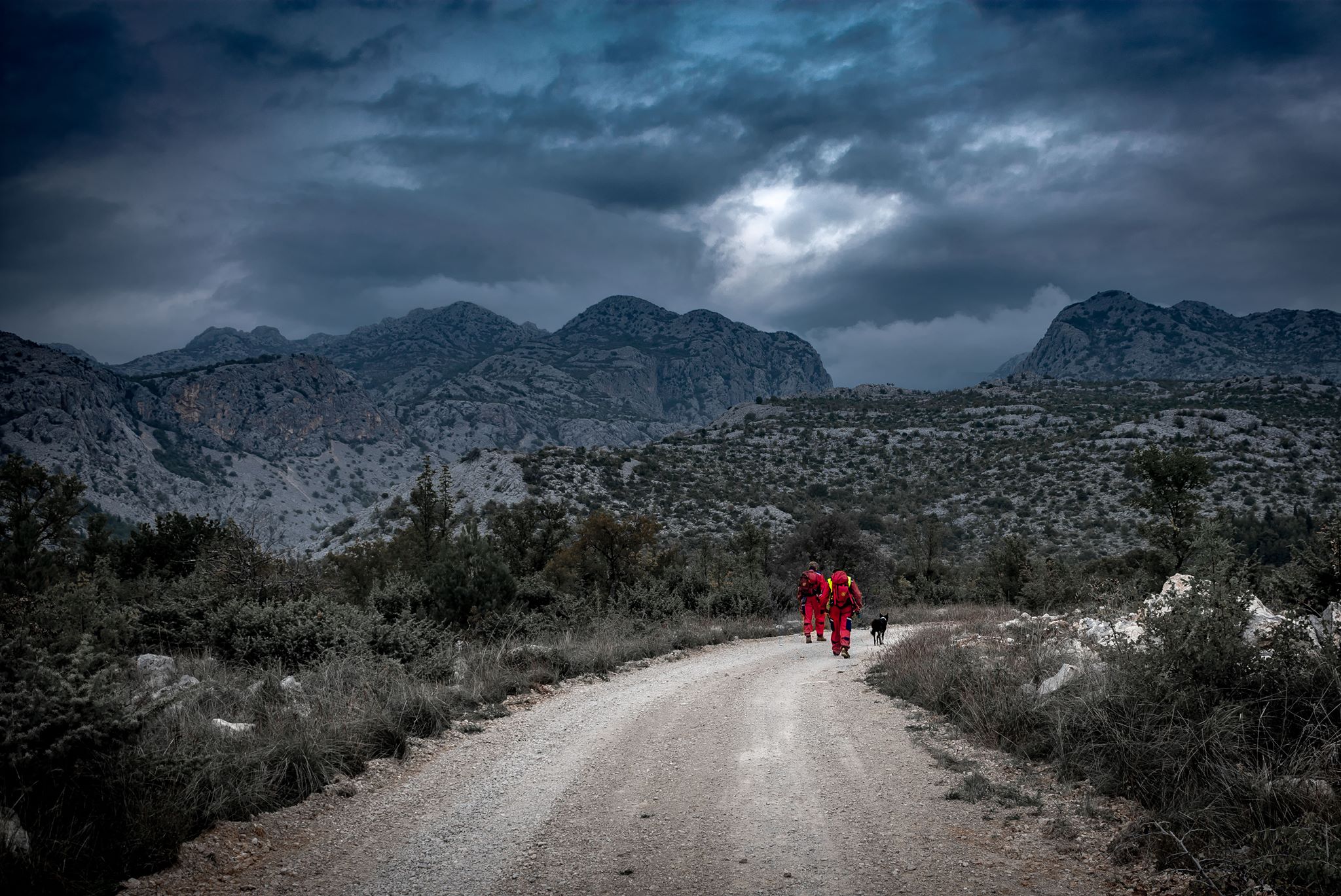
HGSS The Croatian Mountain Rescue Service members entering Paklenica under foreboding skies © HGSS The Croatian Mountain Rescue Service
I've really been on so many expeditions with HGSS. My station are on duty in the season at National Park Paklenica and I'm now the coordinator. Climbers from all around the world come and so there are many interventions. None of them are easy because the terrain is incredibly difficult. You really have to be in shape and know the techniques inside out.
I'm very proud of my statistics. Everyone I've rescued, who was alive when I reached them, is still living today. Unfortunately, not everyone we reach is alive when we arrive.
I remember one time, my husband and I were having dinner. We were arguing about the techniques and knots for moving a stretcher down a vertical climb. The training is so intense, you really have to know it well, and I guess that's just the kind of people that we are, that we would be arguing about it in our free time. Ha! He told me, "Why do you care? You'll never have to do that," because usually, it's really strong guys who do that specific job. If you're on a 400-metre-high section of rock, it really takes a lot of muscle.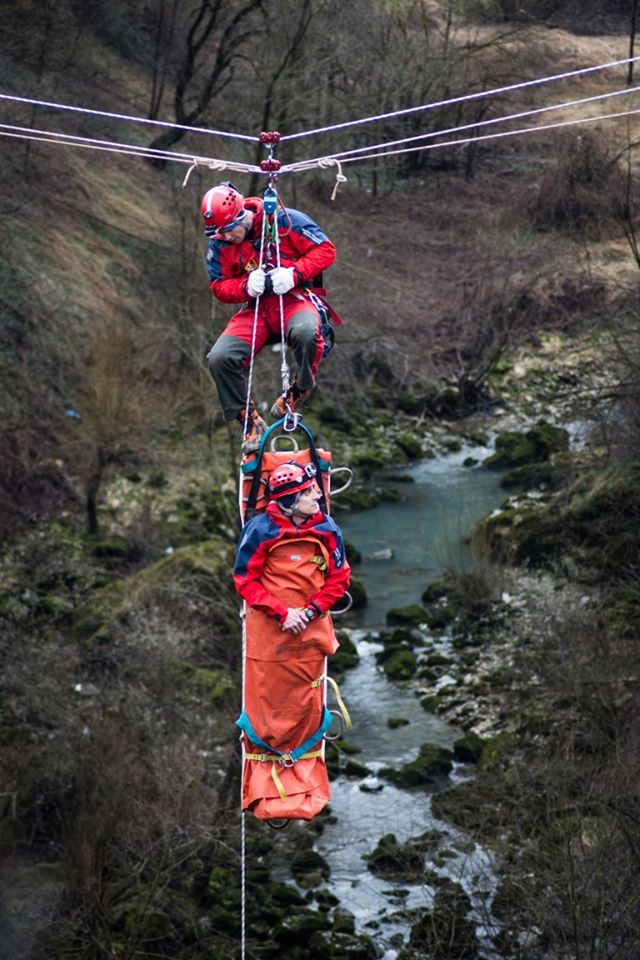
Ascending from a valley floor or descending from a mountain peak with a stretcher is a technically difficult operation, often hindered by darkness and adverse weather conditions. It requires a lot of training and a lot of muscle © HGSS The Croatian Mountain Rescue Service
In the evening, just two days later, we were called out to rescue an Italian guy who broke his leg on Anića Kuk. It's a really mighty part of the stone. And the leader of the expedition asked me to go on the stretcher. They pull you down on the ropes and you have to push very hard to keep the stretcher, the person you're carrying and yourself away from the rock, while balancing the weight of all three. It was dark, raining and with lots of Bura, the incredibly strong wind that sometimes hits us. That's probably my most memorable rescue.
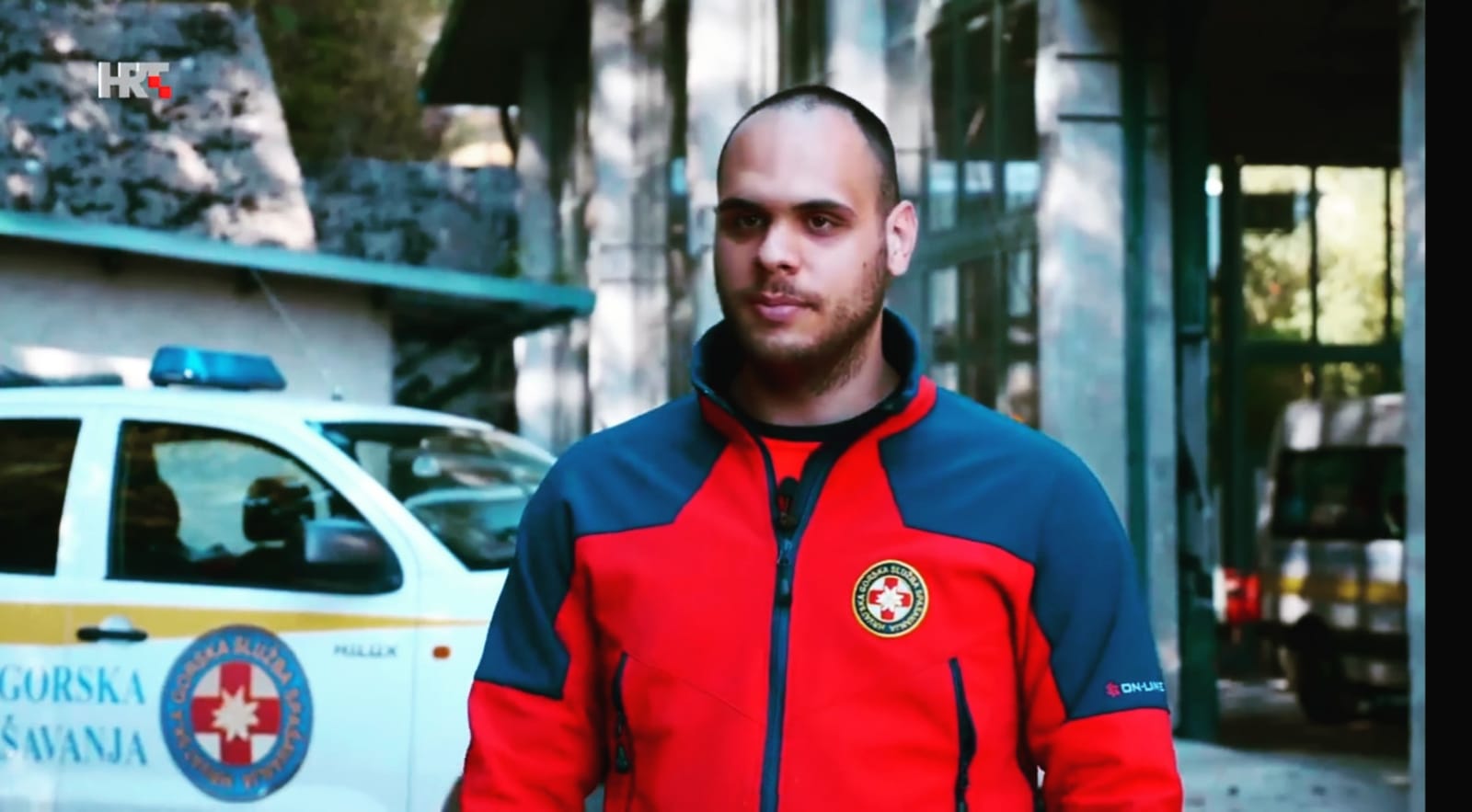
Petar Prpić, firefighter and volunteer for HGSS The Croatian Mountain Rescue Service
My name is Petar Prpić, I'm 25 years old and I'm from Hrvatska Kostajnica, just on the Croatian-Bosnian border. My station is in Novska. In my full-time job I'm a professional firefighter. I guess I have two dangerous jobs. Well, one job and one hobby.
I've always been interested in the outdoors – mountaineering, hiking, canoeing. But, that's not why I joined HGSS The Croatian Mountain Rescue Service. I just wanted to help people. I don't know, I guess it's just something in me.
We have a lot of rivers in our area. During the times of flood, we get a lot of call-outs. Our part of the country has a high percentage of elderly people in the population. A lot of them live in small villages, on the edge of the forest. We get a lot of call-outs for searches. Especially in the autumn when people go out looking for chestnuts or mushrooms. But, like all the stations in Croatia, we are here year-round if there are any actions in other parts of the country that need us.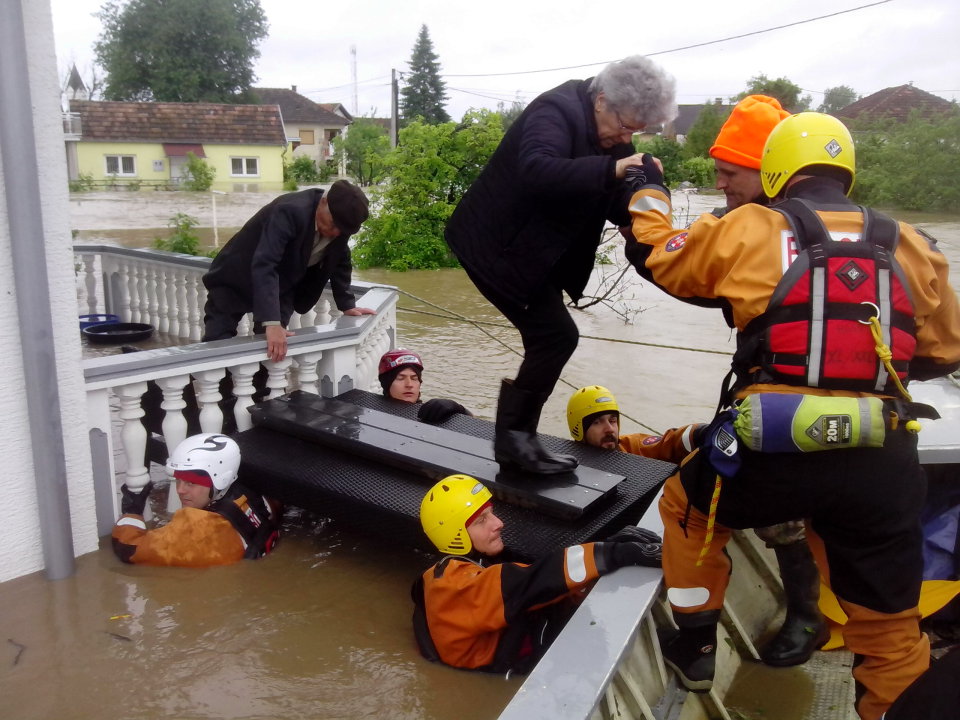
In some areas, HGSS The Croatian Mountain Rescue Service are frequently called out in response to flooding. This picture shows HGSS members on operation during the 2014 floods. In that year, flooding across the whole region was so bad that HGSS members operated not only in Croatia, but also donated their services to neighbouring Bosnia and Serbia © HGSS The Croatian Mountain Rescue Service
I was just on the search in Biokovo. The head of service called me and asked me to go. I first had to get some free days from my job. I called my boss, Zvonimir Ljubičić, chief of the fire department. He's great, very understanding, and he gave me permission. Two years ago I was called to Rab. Very hard operation, very difficult terrain.
Late last summer, we were called out to look for an older man near Glina. It was around 11 o'clock in the evening. He'd gone to look for mushrooms in the afternoon and never came back. Police were there and they sent for us.
The man had a cell phone on him, but there was no signal. There was no location given off the phone. We were a team of four, split into two teams. We went up into the woods above Glina and concentrated our search on areas where we could see there was no telephone signal on our phones. We were yelling in the dark. After an hour of search, someone answered. He'd been missing since 2pm. We found him at 2am. He was just lying there, uninjured but unwell, unable to move.
The reason it sticks in my mind is that the next day, in the morning, his daughter called me. She was so thankful, so emotional. For sure we saved his life. None of the other emergency services who were present could find him. It was down to us. We finished the operation at about 6am and then all four of us had to go immediately to our regular jobs.
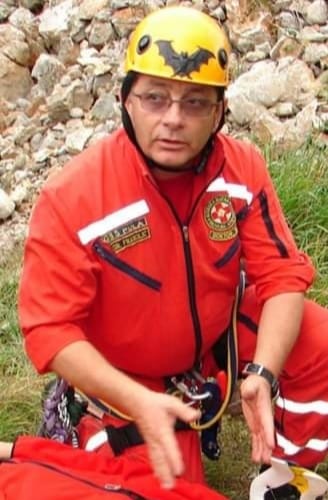
Mario Franolić, physician, ex-commando and volunteer for HGSS The Croatian Mountain Rescue Service
My name is Mario Franolić and I'm 60 years old. I'm the chief of the mountain rescue service in Istria. I travel throughout Croatia because I'm also an instructor for the medical commission of HGSS. I was born on island Krk. I'm based in Pula although I work in Rijeka. I travel a lot between the two. I've been with HGSS The Croatian Mountain Rescue Service for 18 years.
In my day job, I'm a physician. I am a senior mentor at the Institute for Underwater and Hyperbaric Medecine in the Clinical Hospital Rijeka. I'm an expert in my field of emergency medecine. I've been doing it for almost 30 years.
When I was young, I trained to be a physician in Belgrade. It was then the best medical faculty in Yugoslavia. At the same time, I also started spelunking (cave exploration). I've been doing it since 1978. Later, I was a physician in the military underwater commando unit. I lived in Austria for five years, but when I came to Pula, they were just starting the HGSS The Croatian Mountain Rescue Service station here. They asked me for help because they didn't have any medical professional on the team. I accepted. It would be a waste not to use all these skills I have.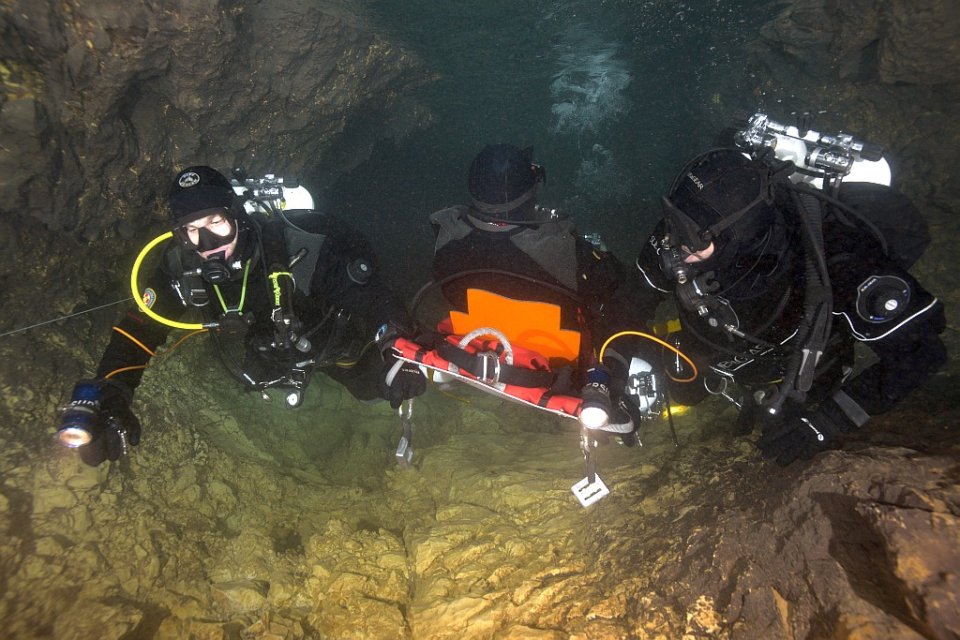
Specialist teams from HGSS are trained in underwater rescue from caves. Such caves exist all over Croatia in the karst rock, and also on some islands © HGSS The Croatian Mountain Rescue Service
Sometimes, our status as volunteers can give us problems. Although we have official duties, we are more like an NGO than something like the police. There can be legal implications. I remember one situation, very acute because a paraglider fell from the sky. None of his colleagues saw him fall. Paragliders go into the air together, but then they each branch off to do their own thing.
We had no idea about the location. We started from the last point of sighting, knowing that it could be very far from the place where he actually fell. But, we had to start somewhere. We had one mobile phone signal direction. But, you need three in order to locate someone. We only had a line on the map.
In the past, HGSS The Croatian Mountain Rescue Service sometimes had difficulties because the telephone companies wouldn't give us the information we needed in order to triangulate the position of a missing person. They would only give it to the police. But, it's a race against time. We searched for this man all day and all night. In the morning, some Croatian paragliders made private contact with a guy from the phone company. They begged him to release the information we needed. Although he could lose his job, giving such information to private citizens, he did it.
We found the man about 150 metres from where we were. Sadly, he was already dead. It was very small comfort to see that he had died instantly, on impact. It's unbearable when you reach someone you could have saved if only you had got there quicker, especially in an instance such as this, where we were hindered by a lack of information that was available. I think it moves more quickly now, but still we have to go through the police.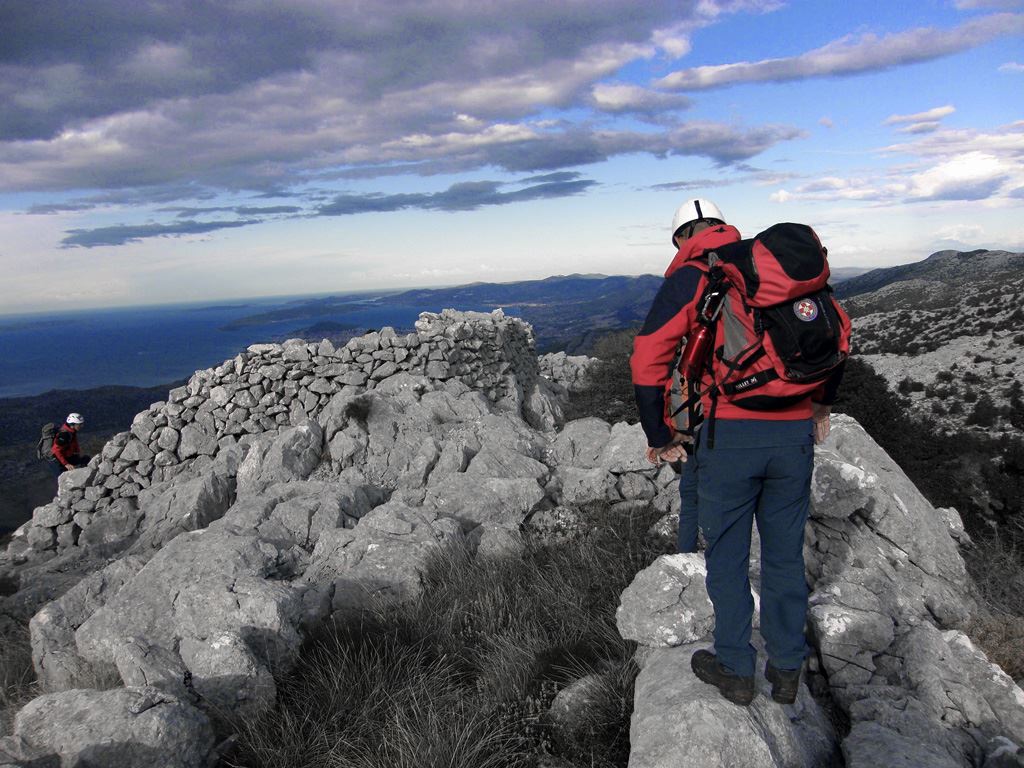
© HGSS The Croatian Mountain Rescue Service
One of the most emotional operations I went on was around five years ago, the rescue of a young girl - maybe two and a half to three years old – who got lost in the woods in a small place in central Istria. She chased into the forest after some dogs around 10 or 11 in the morning. The family saw immediately that she had disappeared and started to search. About two hours later, we were called out. It was impossible for the family to find her.
About 300 people came – my station, the Rijeka station, hunters, firemen, police and volunteers. In such an operation, the police are the lead service. But, 99% of the time they leave the organisation of the search to HGSS The Croatian Mountain Rescue Service. We are the only organisation who is very well educated in organising searches. When other people do searches, they use intuition. But, people all have different intuition. It can be chaotic. We are highly trained for this. There are procedures, recognised internationally, that we follow. We found her early in the morning, at around 7 o'clock. The dogs were lying on each side of her, giving her warmth.
All photos courtesy volunteers and HGSS The Croatian Mountain Rescue Service
Groundbreaking Surgeon from Rijeka Successfully Completes Complex Brain Surgery
Dinko Štimac M.D., the head of the Neurosurgery Department at the Clinical Hospital Center in Rijeka (KBC), is blazing a trail in Croatian medicine.


